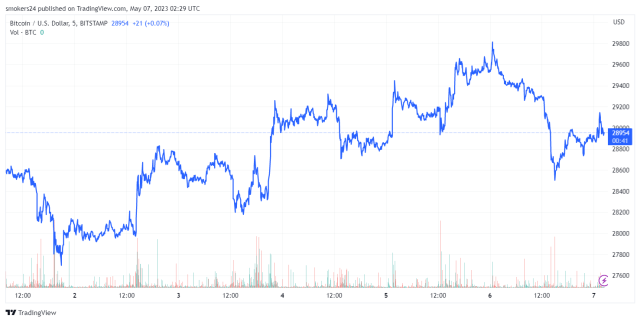
Argentina has become a hotbed of illicit cryptocurrency activities lately. Authorities recently detained a 37-year-old man posing as a cryptocurrency trader. He allegedly laundered millions of dollars for criminal groups with crypto-assets.
Large-Scale Money Laundering Scheme
According to local press, the suspect, whose name was not released by the police, received these funds from scams committed through fake websites. Local authorities were tipped the exchange used to move the tokens, which detected suspicious activities on the account created by the suspect.
The police moved in to conduct their investigation, which led to uncovering a high-profile money laundering scheme that cloned bank pages to lure unsuspecting victims of their hard-earned money. During this period, the police have managed to identify and prosecute the group of people that coordinated the operation, ranging from those who lent their names to open bank accounts, recruiters, and the team that cloned the bank web pages.
Related reading: US SEC Awards Record $279 Million To Whistleblower – More Crackdown On Crypto Firms?
The investigation further revealed that the detainee managed to launder $11.57 million in cryptocurrencies using a hardware wallet. Hardware wallets have become criminals’ ideal means of laundering money due to their portability and accessibility. These wallets come in pen drive shapes, and to access the tokens stored in the hard wallets, they are connected to a computer, and a seed phrase — a 12-word password — is inputted.
The police also noted that the arrest of the primary suspect puts an end to the investigation of the money laundering scheme. Argentine authorities have been clamping down on cybercrime, with the police undertaking 70 simultaneous raids across different regions.
The Dark Side Of Cryptocurrency
While this can be considered a win for authorities, it undoubtedly puts crypto-assets in a negative light once again. Countries like the United States and Europe have taken rigid measures to regulate crypto as an alternative means of payment, while others like China and Nigeria have banned it outrightly.
One of the compelling arguments is that cryptocurrencies can be used for illicit activities, which can be hard to trace and makes them attractive for money laundering and other financially related crimes. In addition, there has been a rise within the crypto industry of scams such as rug-pulls, and smart contract exploits, leading to massive losses for those affected.
Related reading: Texas Lawmakers Progress With Digital Currency Bill
Nevertheless, many crypto advocates believe that the negative elements in the industry are minimal, and most financial crimes still occur using fiat payment systems. The increasing regulations in the crypto industry have also reduced crime, as many exchange platforms are required to conduct KYC and other compliance processes. This largely led to the suspect’s arrest in the money-laundering scheme.

-Featured Image from, iStock chart from Tradingview














